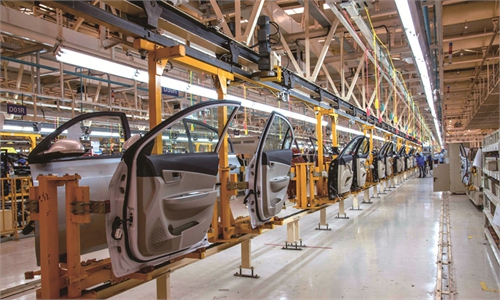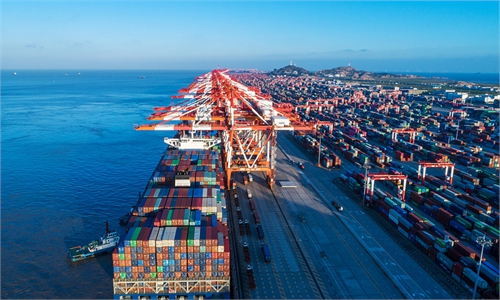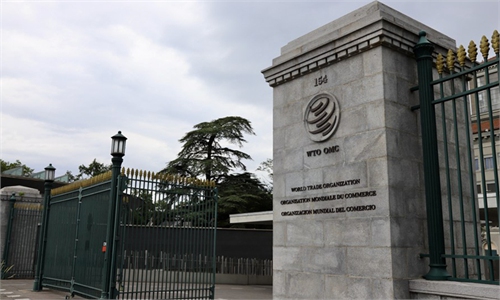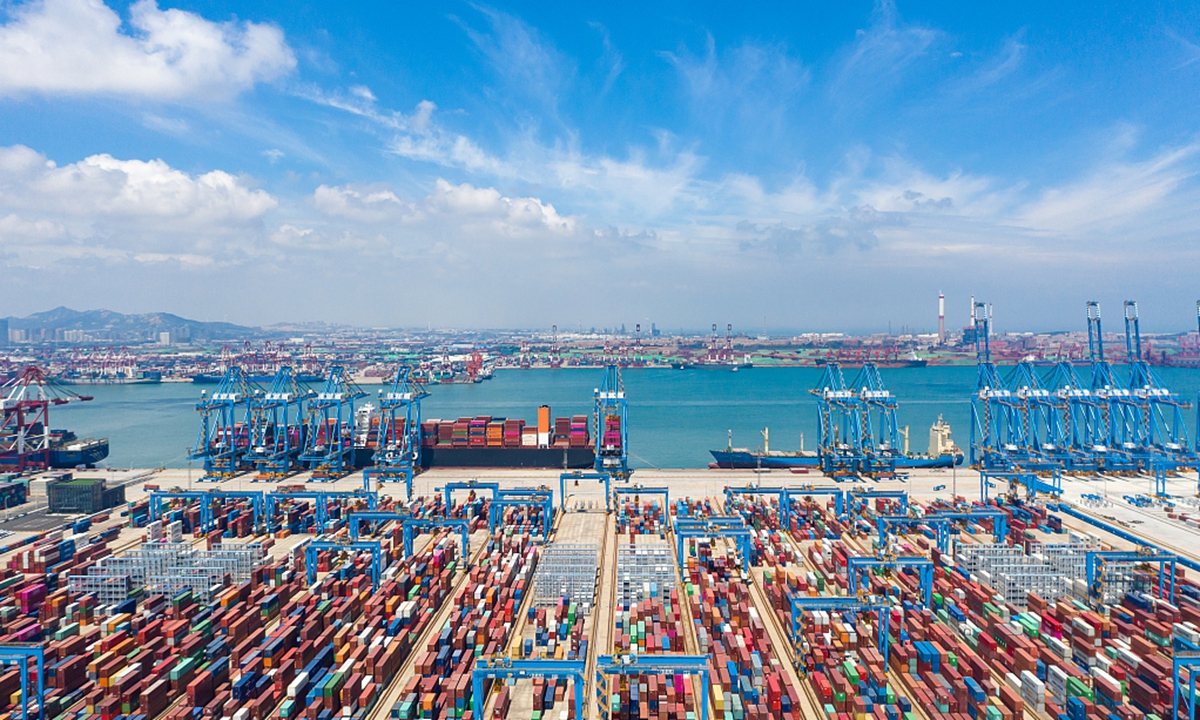
trade Photo: VCG
China's integration into global supply chains since its accession to the WTO has underpinned its economic development and industrial upgrading, Yi Xiaozhun, the WTO's former deputy director-general, said on Monday, while calling for a continuation of market opening to make the economy a magnet for multinationals.Yi said that he expects China to remain a champion of multilateralism to resist trade protectionism and geopolitical uncertainty. He also refuted misconceptions about the economy's meteoric rise.
In a speech to an event in Beijing hosted by the School of Public Policy and Management of Tsinghua University, Yi, a former vice commerce minister, said that China's meteoric rise over the past few decades could be attributed to the advantages based on its WTO entry in 2001 to "board the global value chain express".
China has made commitments to open to the world, greatly improving its business environment, increasing the transparency and predictability of the Chinese economy and its trade regime, and lowering the trade cost in China, according to Yi.
Such progress cemented multinationals' confidence about investing and building factories in China, he said.
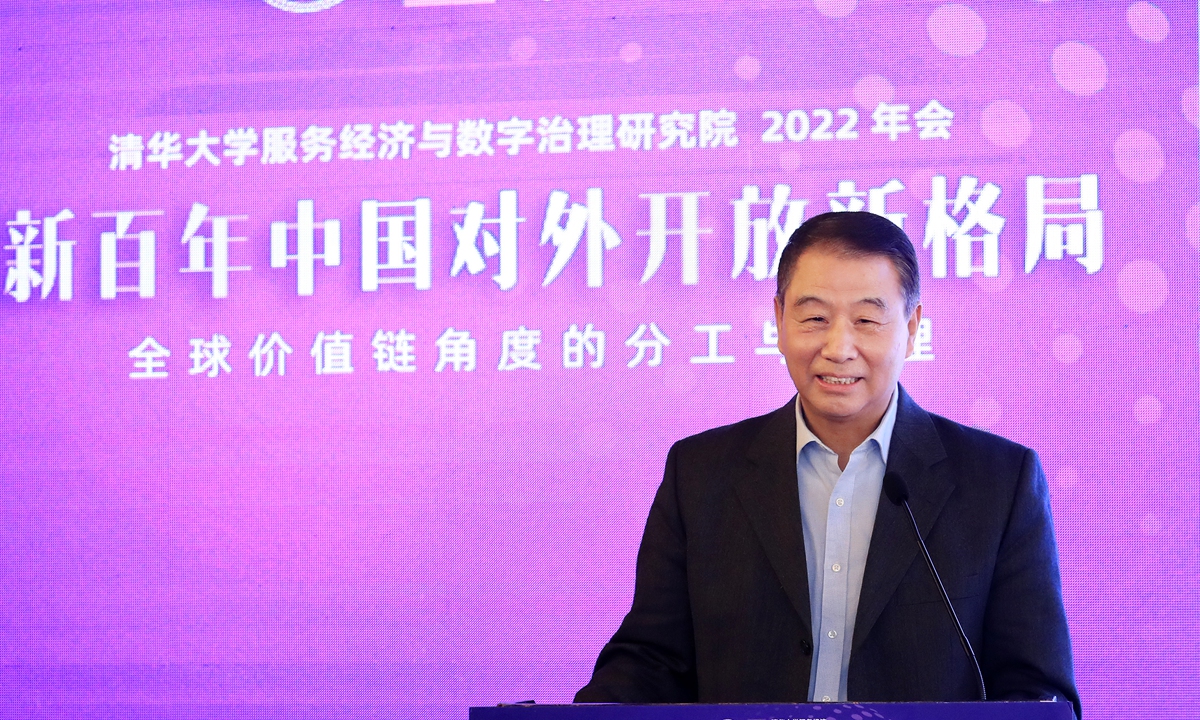
Yi Xiaozhun, WTO's former deputy director-general, speaks at an event in Beijing on January 10, 2022. Photo: Courtesy of the School of Public Policy and Management of Tsinghua University
Some Western media outlets have hyped the so-called "China shock", mistakenly interpreting China's rapid growth as sacrificing the interests of other WTO members, Yi said.
The Chinese mainland's actual use of foreign direct investment (FDI) is estimated to have topped 1 trillion yuan ($157.49 billion) in 2021, data from the Ministry of Commerce (MOFCOM) showed. FDI inflows into the mainland hit 999.98 billion yuan in 2020.
China's industrial system, thanks to the country's alignment with the WTO rules, is now deeply integrated into global supply chains, Yi said, citing China's manufacturing value added, which accounts for nearly 30 percent of the world's total.
China's stellar trade and economic growth epitomized the country's tangible development in job creation, manufacturing and technological advances, Jiang Xiaojuan, a member of the Standing Committee of the National People's Congress and dean of the School of Public Policy and Management and the Institute at Tsinghua University, said at the event.
Global consumers can enjoy premium yet affordable Chinese products, helping to rein in inflation. Meanwhile, China provides an enormous market for many exporters of primary items and offers foreign investors a huge market, Jiang said.
The coronavirus pandemic has exposed some of the fragilities facing global supply chains, and multinationals can diversify their supply sources to improve the resilience of global economy, Yi said.
Amid the ongoing global industrial reshuffling, China ought to continue with its opening-up pledge to lower the costs of trade and investment, turning the country into a low-cost destination for world trade and manufacturing, so multinationals would stick to China's huge market for regional R&D headquarters and supply chains, said Yi.
Global industrial and market reorganization is imperative amid quickened digital globalization, meaning China needs to open up its industries even wider to link up more resources and markets, sharpening the country's competitiveness in the digital era of globalization, said Jiang.
